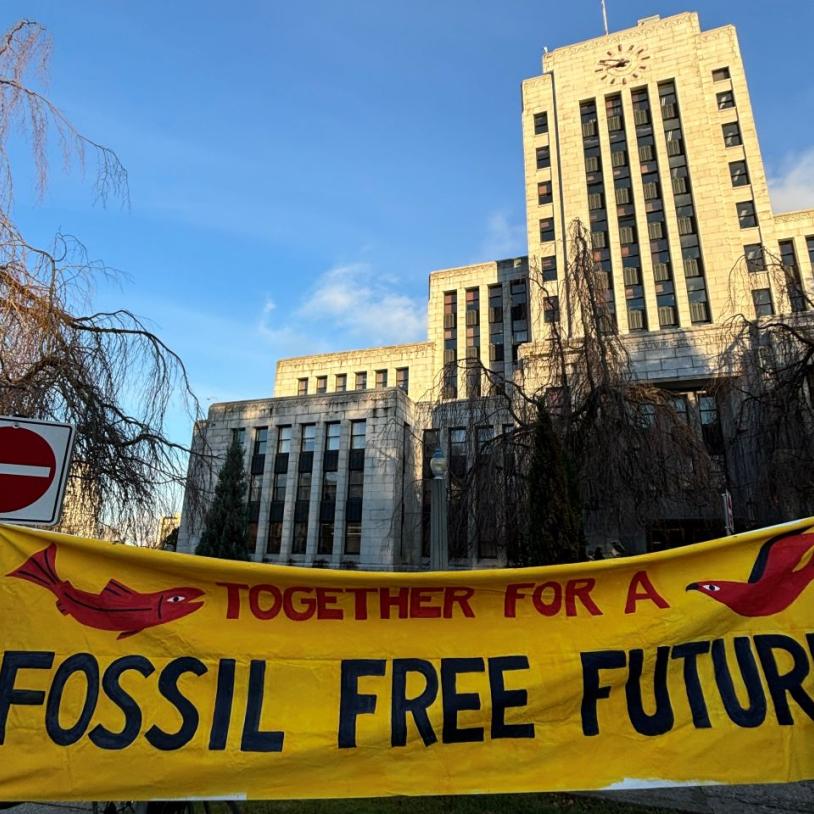BCUC ruling on Province’s energy plan praised, panned
Wednesday, August 5, 2009Whistler – Last week’s B.C. Utilities Commission (BCUC) ruling on B.C. Hydro’s massive call for clean energy may, indeed, be a rebuke to Premier Gordon Campbell’s power privatization plans, but it doesn’t serve the long-term best interest of the public, a Pemberton-based energy consultant said this week.
Echoing the comments of the environmental group ForestEthics, which called last Wednesday’s (July 29) BCUC ruling “short-sighted” and one that “locks British Columbia into an uncertain future dependant on fossil fuels,” Nigel Protter on Monday (Aug. 3) said he wholeheartedly disagrees with the BCUC in its assessment of B.C. Hydro’s long-term acquisition plan as “not in the public interest.”
In an email to The Question, Protter argued, “This judgment has been rendered based on the lowest short-term economic cost to the ratepayer. It complete ignores the well-understood negative externalities of fossil-fuel consumption that the rest of the enlightened world is pursuing with vigor.”
The BCUC’s 236-page ruling, which followed several months of hearings on the merits of B.C. Hydro’s long-term acquisition plan, was seen by most as a challenge to the ruling B.C. Liberals’ Energy Plan and a blow to the independent power industry, which has signed some $31 billion in private power contracts with B.C. Hydro to date.
In its ruling, the BCUC refused to endorse B.C. Hydro’s long-term call for 3,000 gigawatts of power from public and private power producers, arguing that the power won’t be needed if more is done to promote conservation.
Not surprisingly, opposition NDP politicians proclaimed the ruling as a victory for ratepayers, while government officials — most notably Energy Minister Blair Lekstrom — disagreed, and vowed to continue pursuing what they believe is the best long-term course of action not only on energy but on reducing greenhouse gas emissions.
The share prices of companies working on independent power projects in B.C. (including Plutonic Power, which is working on a $4 billion, 1,027-megawatt project at Bute Inlet near Powell River), fell in response to the BCUC ruling.
The Western Canada Wilderness Committee (WCWC), which has been railing against the “gold-rush” B.C. Liberal energy policy for the past decade, hailed the BCUC decision as being best for the ratepayers and the environment but also raised concerns with portions, most notably its support for the continued use of the fossil-fuel Burrard Thermal power plant.
“For people concerned about the potential impact of hundreds of diversion projects on our rivers and streams, this is good news,” the WCWC’s Andrew Radzik said in a statement. “BCUC wants more work on conservation, which they think will prove more cost-effective for ratepayers. That’s good news for our environment and our pocketbooks.”
Radzik, though, said relying on fossil-fuel-powered plants such as Burrard Thermal isn’t the answer, either. “There are other solutions that the B.C. government has not looked at, like using some of the power we get as a benefit under the Columbia River Treaty,” he said.
As a whole, though, the group B.C. Citizens for Public Power hailed the decision. “Even the government’s own independent regulatory body — in examining the evidence — confirmed that the province’s need for additional power has been grossly exaggerated,” Melissa Davis, the group’s executive director, said in a statement.
Merran Smith, climate director with ForestEthics, strongly disagreed, saying, “Shutting the door on renewable energy and locking our province into an uncertain future dependent on fossil fuels doesn’t seem very safe or reliable. The BCUC needs to be an enabler of B.C.’s green energy future, not a brick wall.”
It remains to be seen what the government will do in response to the ruling, but it seems that either a legal challenge or an end run around the BCUC ruling may be in the works.
In an opinion piece submitted to B.C. news outlets, Lekstrom steadfastly denied that the government plans to increase the province’s reliance on Burrard Thermal, as the BCUC suggests.
“Over the coming weeks,” he wrote, “we will be reviewing the BCUC decision to ensure that B.C. Hydro has the flexibility to meet our energy plan and climate change goals, which will require a significant and growing supply of clean, renewable energy.”
Not surprisingly, those involved in the independent power industry welcomed Lekstrom’s re-affirmation of the government’s policies.
Said Steve Davis, president of the Independent Power Producers Association of B.C., in a statement, “If there was any concern about the government’s commitment to the renewable energy sector arising from the BCUC decision, the minister’s comments have allayed those concerns.”





